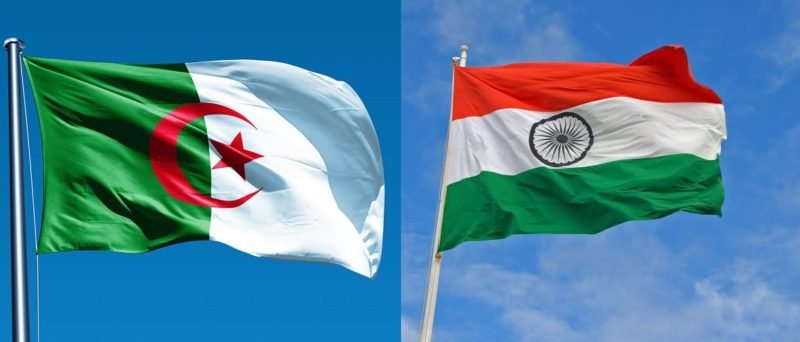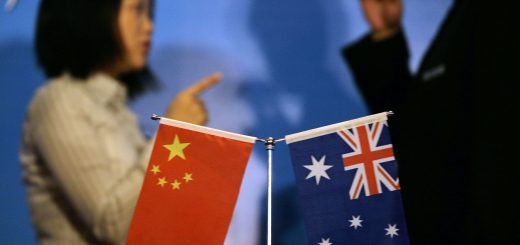Why Algeria Should Matter to India?

One of an integral part of strategically located Maghreb region, the largest country of Africa, Algeria has maintained warm and cordial bilateral relations with India since independence and the relationship has been characterised by the convergence of approach on issues of international concern.

Political solidarities beginning with India’s support to Algerian Liberation Movement from French colonial rule to active partnership within the Non-Aligned Movement and agreement on issues of basic importance to developing countries have played a considerable role of cementing force in strengthening the relationship. However, Algeria’s deep political and socioeconomic problems and the dismal or bleak history of neighbourly cooperation in Maghreb region, reflected in the largely dormant state of Arab Maghreb Union has offered little incentive to India to justify more intense bilateral or subregional relationships with the countries of the region including Algeria. Despite all the wave of upheavals that shook the country of Algeria, India driven by its concern of future resource needs has tried to maintain a strong foothold in the country, underlined in the regular exchange of high-level political visits over the last two decades.
Amidst political upheaval, the outbreak of COVID-19, a health emergency turned into socioeconomic and humanitarian crisis across the world, with threatening economic prospects has added to the list of Algeria’s complex challenges. The lasting impact of the pandemic on countries across the world in general and particularly on the developing economies of global South requires a framework of collective response to mitigate the crisis. And, the urgency of the situation makes it imperative for both the countries of India and Algeria to expand the scale of mutual engagements to capitalise on the already built mutual trust and goodwill in order to leverage the untapped potential of bilateral relations.
The rentier economy of Algeria primarily dependent on Hydrocarbon exports for growth has been severely affected by the recent unprecedented fall in oil prices and has realised the magnitude of its vulnerability to external shocks. Fast depleting foreign exchange reserves contributing to the contraction of government’s spending in the social security measures has contributed immensely to the already mounted trust deficit between the ‘government and the governed’ and is reflective of the need of structural changes in economic and social policies. In pursuance of Algeria’s longstanding objective to diversify its oil-reliant economy, trade and commercial relation with India which has seen a significant spike in numbers over the last decade can be of decisive influence. Recent, Algerian government’s adoption of 2020 financial law to withdraw the “51/49 rule” for foreign investment in non-strategic sectors, that curtailed foreign investment and external resources in the country, is reflective of the forthcoming reform to revitalise the economy and calls for effective collaboration with India in order to sustain the optimism. Algerian government by disowning protectionist tendencies and freeing up the major sectors of the economy can reap the benefits of its strategic location to its true potential and should ensure that structural transformation follows up the pandemic.

Given India’s need to diversify the source region for Hydrocarbon import in order to reduce the effects of price volatility & strengthen energy security and presence of large natural reserves in Algeria, complementary priorities of both the countries in Hydrocarbon sector calls for greater collaboration with a sound mechanism in place. Located strategically at the southern coast of Mediterranean Sea, Algeria with its rich demography and potential to act as a transit point offers the immense prospect to the Indian private players looking for an increased presence in the European market. However, for private players to thrive, there is a need to have cooperation on infrastructure building and capacity development programmes to tap the unrealised potential of youth in Algeria and Indian side with its vast experience & expertise aided by programmes like Skill India can be of major help and must take the lead. Frequent engagements between private players of both countries need to be encouraged in order to explore and deepen the relationship in the potential area of cooperation. The knowledge deficit among the people of both the countries about each other largely due to the lack of engagements between media organisations needs to be addressed by enhancing cooperation at the level of media personnel and institutions.
So far, as the COVID-19 crisis is still unfolding, one most visible trend is that the pandemic has made global commitments and priorities of most nations more skewed towards ensuring greater public health security for its citizenry. Cooperation on making healthcare inclusive, better equipped and accessible to all has the potential to garner mutual gains for both the countries. India with its reliable pharmaceutical industries and state of art medical infrastructure providing cost-effective medical services has a comparative advantage and can become a major provider of global healthcare services in years to come. By issuing fast-track medical visas and rapid airport clearances to those Algerian nationals, visiting as medical tourists, there is a scope to enhance the level of medical tourism, one of the significant source of foreign currency in India which was valued at around 9 billion Dollar in 2020. Scope for cooperation on telemedicine programmes to enhance the capabilities of Algerian Healthcare workers also needs to be leveraged.
Considering the security dimension of the relations, the instability in the neighbouring country of Libya, highly localized and sporadic terrorist activities carried out by radical Islamist groups has continued to challenge Algeria’s security. The scope of cooperation on counter-terrorism measure with frequent engagement has the required potential to upgrade the bilateral relations into a more substantive one. From greater collaboration on providing quality training for the use of sophisticated equipment to a better agreement on counter-smuggling operations and terror financing, there is considerable scope for enhancing the scale of engagements. The aligned interest of both the countries in modernising their forces provides scope for increased engagements in sectors like defence manufacturing and research & development. Having supported India’s stance on Jammu & Kashmir and its bid to expand the membership of UN security council in the past, Algeria shares a similar worldview of inclusive, representative global order with India. The pandemic has heightened the international pressure to reform the existing global institutions and better convergence of views on regional and international issues of mutual concern between the apex political leadership of both the countries is required in order to build up a collective pressure to bargain favourable returns for global South.
Seen as one of the greatest reset points in the history of human civilisation, the COVID-19 pandemic till now, has tested the resilience of every existing structure and relations, and has also provided space to fix the respective priorities of every actor to usher in a new form of growth and development. It’s time that both the countries start making greater use of existing potential.


















